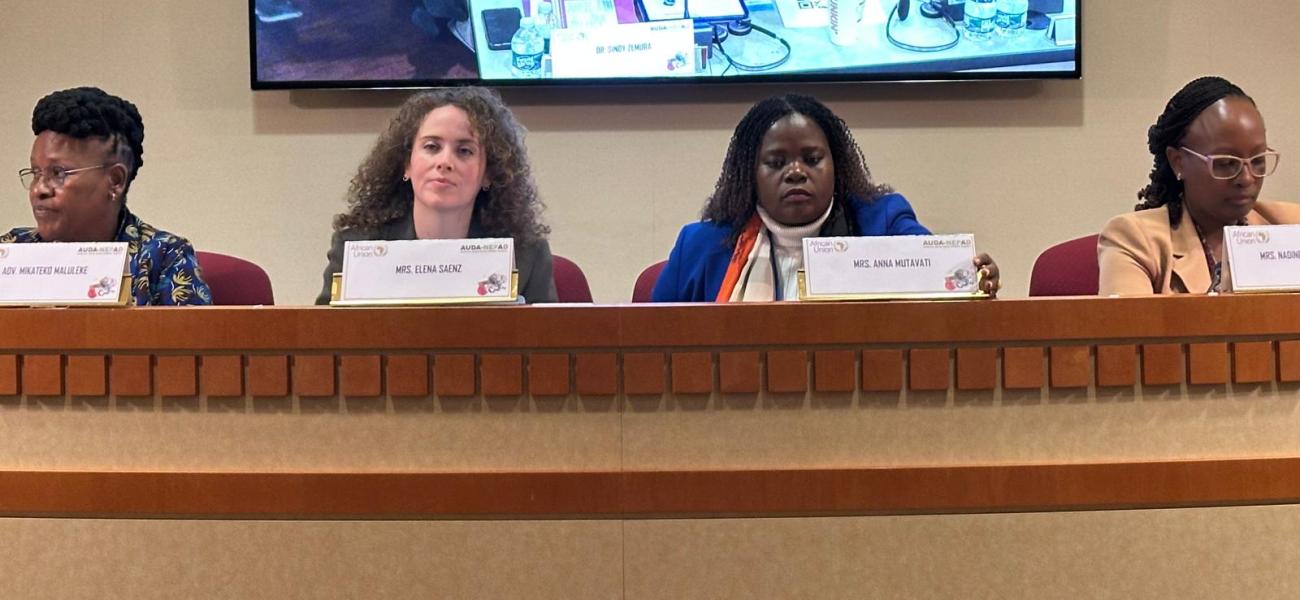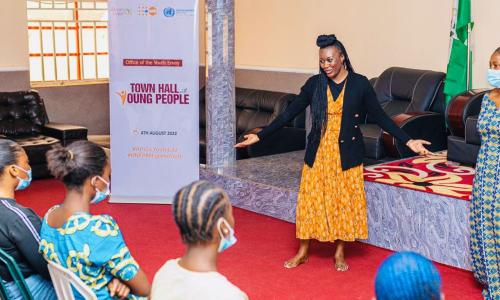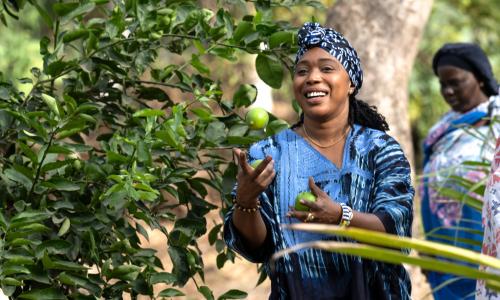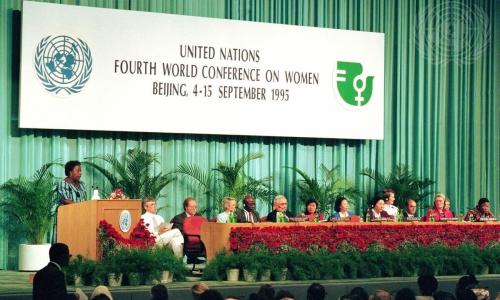With the conclusion of the sixty-ninth session of the Commission on the Status of Women (CSW69/Beijing+30) in March 2025, gender advocates are now setting their sights on their next major opportunity: the G20 Summit in South Africa in November 2025—the first time the summit will be hosted on the African continent.
“It’s a chance to push for stronger global commitments to gender equality,” said advocate Mikateko Maluleke, Director-General of South Africa’s Department of Women, Youth, and Persons with Disabilities.
South Africa currently chairs the G20 Empowerment of Women Working Group (EWWG) under whose auspices the country will help set agenda for the upcoming G20 summit.
Ms. Maluleke outlined key gender priorities for the G20, including recognising and addressing both paid and unpaid care work, expanding financial inclusion for women—especially in resource-rich sectors like lithium mining—and strengthening policies to combat gender-based violence and femicide.
These priorities align with those of the African Union Commission (AUC) and its development agency, the African Union Development Agency (AUDA-NEPAD).
In fact, Symerre Grey-Johnson, the director of Human Capital and Institutional Development at AUDA-NEPAD, joined Ms. Maluleke and other leading gender advocates at a CSW30 event in New York on 12 March to discuss strategies for advancing gender equality and women’s empowerment across the continent. The event was hosted by AUDA-NEPAD and the AUC.
Mr. Grey-Johnson raised concerns about the rising economic pressures and shifting aid flows and stressed the urgency of bold, evidence-based actions to support African women and girls.
“Women’s rights come under increasing threat… we need to act now,” he said, emphasising that despite decades of commitments, progress remains slow.
While some countries, such as Rwanda, have made significant strides in gender equality—Rwanda’s parliament, for example, is majority female—many African nations still lag behind, the speakers mentioned.
The gender advocates celebrated the adoption of the Beijing+30 political declaration and agreed to intensify their advocacy efforts in the months and years ahead.
“We now have a Beijing+30 framework,” said Prudence Nonkululeko Ngwenya, AUC’s director of Women, Gender, and Youth Directorate of the AUC. “Stakeholders must align efforts, learn from one another, and focus on practical actions.”
Turning commitments into action
Gender advocates often emphasize moving beyond policy commitments to focusing on real impact. At the event, they echoed that sentiment once again.
“Policies alone are not enough. They must lead to real change,” said Fatima K. Mohammed, Permanent Observer of the African Union to the United Nations. She urged governments to prioritize the implementation of gender policies at the national level and invest in education and leadership programmes for young African women.
Both AUDA-NEPAD and the AUC highlighted the steps they are already taking to turn commitments into action. For example, NEPAD’s new Women’s Empowerment Programme is designed to give African women a voice in shaping policies that affect them.
Another initiative is the NEPAD-Spanish Fund for African Women’s Empowerment, which has provided thousands of women with economic and leadership opportunities (see box), according to Jessica Annor, Senior Programme Officer at AUDA-NEPAD.
Similarly, the AUC’s Women and Youth Financial & Economic Inclusion Initiative (WYFEI 2030) could potentially unlock $100 billion in funding for 10 million African women and youth entrepreneurs.
Mobilising resources is just the first step; ensuring that funds reach those who need them most is equally critical, which is why the AUC called for stronger public-private partnerships, a reduction in dependence on donor funding and increased domestic resources mobilisation.
Gender disparities
Yet, despite all the ongoing efforts, gender disparities persist in education, employment, and economic inclusion, and one of the most compelling discussions at the New York event focused an often-overlooked gender issue – widowhood.
Elena Saenz, the executive director of the Global Fund for Widows (GFW), shared alarming statistics: 90 per cent of widows in Africa live below the poverty line, 76 per cent have been disinherited—losing property and assets—and 48 per cent have suffered gender-based violence.
Ms. Saenz highlighted the Widows Savings and Loan Association (WISALA), a widow-led microfinance model that helps widows achieve financial independence.
“Widowhood is a major human rights issue,” she stressed, calling for widows to be included in Africa’s gender policies.
On another front, closing gender gaps in education and employment could significantly boost Africa’s GDP, said Tumi Mkhize-Malebo from the Institute for Security Studies (ISS) Africa. She emphasized the importance of bridging the education and digital divide to equip women with skills for high-paying jobs.
Ms. Mkhize-Malebo also called for periodic gender equality reports from AU member states to enhance accountability and stronger data collection efforts through partnerships with the African Development Bank and the African Centre for Statistics. “Without accurate data, gender policies risk being disconnected from reality,” she warned.
1.2 million women in 38 African countries
7 Business incubators for Women Entrepreneurs
175 cooperatives
27,000 women access extension services, technologies and financing
190,000 women access cross-borders markets
530,000 women and youth get business and vocational skills
125,000 women get small & medium entrepreneurship skills
Priorities
Many speakers at the event stressed the critical role of grassroots movements in advancing gender equality. They highlighted that women and girls are often at the forefront, addressing gender inequality by organising, educating, and advocating within their communities. Their efforts, they insisted, must be acknowledged and supported.
A live poll conducted during the event highlighted key priorities for the next five years, including poverty eradication, social protection, education, economic prosperity, and safety from violence.
Digital exclusion emerged as one of the biggest barriers to women’s economic participation. Millions of African women lack internet access, digital literacy, and financial technology skills, which prevents them from benefiting from online education, e-commerce, and digital finance.
While technology has the potential to be a great equalizer, it will only fulfill that role if women have access to it. Panelists called for expanding digital literacy programmes for women, ensuring that women-owned businesses can access online markets, and integrating digital skills training into national education policies.
The road ahead
There is an evolving context, said Mr. Grey-Johnson, which requires effective and transformative investments in women to yield “tangible lasting results.”
“Let us leave this meeting with a renewed sense of purpose and unity, ensuring that the promises made today translate into meaningful action for generations to come,” urged Ms. Bineta Diop, the AU Special Envoy for Women, Peace and Security.
Other speakers echoed her call, emphasising that the time for talk is over—what is needed now is concrete action.






